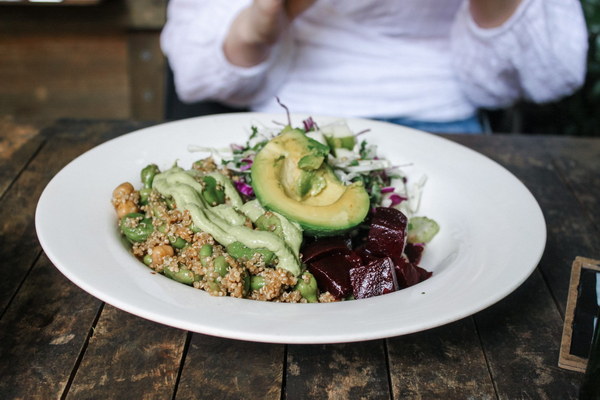Is Eating Mung Beans Effective for Removing Dampness in Traditional Chinese Medicine
In traditional Chinese medicine (TCM), dampness is considered a common pathogen that can lead to various health issues. It is often described as a buildup of moisture in the body, which can manifest in various symptoms such as fatigue, weight gain, and digestive problems. Many people turn to natural remedies, including the consumption of certain foods, to help alleviate dampness. One such food that is often recommended is mung beans. But is eating mung beans really effective for removing dampness? Let's explore this question further.
Mung beans, also known as green beans or mochi beans, are a type of legume that is rich in nutrients such as protein, fiber, vitamins, and minerals. They are widely consumed in various cuisines around the world, particularly in Asian countries. In TCM, mung beans are believed to have cooling properties and are often used to treat dampness-related conditions.
The idea behind using mung beans to remove dampness is based on the concept of balancing the body's Yin and Yang. In TCM, dampness is often associated with an imbalance of Yin, which represents cool, moist, and slow energy. By consuming mung beans, which are believed to have a cooling effect, it is thought that the body's Yin energy can be restored, leading to the elimination of dampness.
There are several reasons why mung beans may be beneficial for removing dampness:

1. Cooling properties: Mung beans are considered to be cooling in nature, which can help balance the body's Yin energy and alleviate symptoms of dampness. This cooling effect may also help reduce inflammation and heat in the body.
2. High fiber content: Mung beans are an excellent source of dietary fiber, which can help improve digestion and promote regular bowel movements. Good digestion is essential for removing dampness from the body.
3. Detoxifying properties: Mung beans are believed to have detoxifying properties, which can help eliminate toxins and excess moisture from the body. This can be particularly beneficial for those who suffer from dampness-related skin issues, such as eczema or psoriasis.
4. Nutritional value: Mung beans are rich in vitamins, minerals, and antioxidants, which can support overall health and boost the immune system. A strong immune system is crucial for combating dampness and preventing its recurrence.
However, it is important to note that while mung beans may be beneficial for some individuals with dampness, they may not be suitable for everyone. Here are a few considerations:
1. Individual differences: TCM emphasizes the importance of personalized treatment, as each person's constitution and condition are unique. It is essential to consult with a TCM practitioner to determine whether mung beans are appropriate for your specific situation.
2. Timing: The effectiveness of mung beans may vary depending on the timing of consumption. For example, some TCM practitioners suggest consuming mung beans in the morning or before bedtime to maximize their benefits.
3. Potential side effects: While rare, some individuals may experience mild side effects, such as gas or bloating, when consuming mung beans. It is important to monitor your body's reaction and consult with a healthcare professional if any adverse effects occur.
In conclusion, eating mung beans may be an effective way to help remove dampness in traditional Chinese medicine. Their cooling properties, high fiber content, detoxifying effects, and nutritional value make them a suitable food choice for those looking to alleviate dampness-related symptoms. However, it is crucial to consult with a TCM practitioner to ensure that mung beans are appropriate for your specific needs and to monitor any potential side effects.









